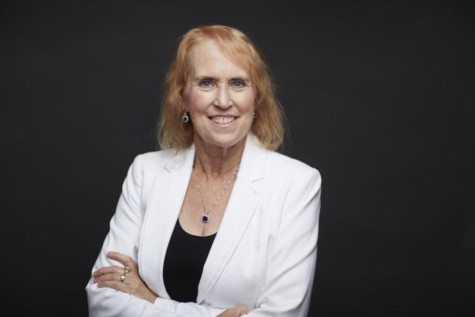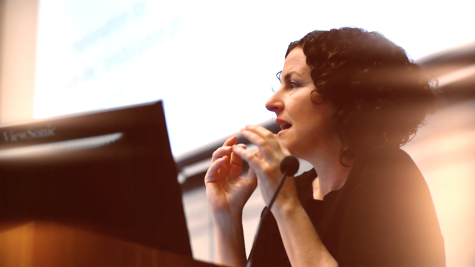NYU selects 2021-22 Distinguished Teaching Award winners
The award’s recipients are nominated by students, faculty and alumni for their excellence and innovation in teaching.
May 5, 2022
NYU has named six professors as Distinguished Teaching Award recipients for the 2021-22 academic year — Sonia Marciano, Donna Hallas, Mara Mills, Michael Poles, Mark Siegal and Kenji Yoshino. The winners were chosen for their excellence in teaching and are provided with a research stipend.
NYU students, faculty and alumni were given the opportunity to suggest nominees until mid-February. Winners are required to meet the criteria set by each school’s selection committee, including teaching full-time at NYU for a minimum of 10 years, having a record of mentoring students and receiving prior recognition for their teaching.

“It’s such an honor to receive,” Hallas, the director of the Pediatric Nurse Practitioner Program at the Rory Meyers College of Nursing, said. “It’s a really nice, terrific award, acknowledging what you do and how you do it.”
Each school has a committee composed of faculty, students, alumni and a representative of the dean’s office that officially decides which nominees will receive the award, according to the criteria. Nominees are required to show innovation and success in their teaching in order to win the award.
In the classroom, Hallas said she teaches problem-based learning strategies to her students to keep up with frequently changing clinical guidelines. Students are able to practice how to assess and treat children and adolescents using simulated patients — individuals trained to mimic real patients — in clinics, or practice consultations on Zoom.
“The biggest thing is that my students all over the country are making a big difference in pediatric healthcare,” Hallas said. “We’ve prepared them to be lifelong learners, take the lead and make new decisions.”
Marciano, a Stern clinical professor of management and organizations, reviews business case studies for students to apply information they learn in the classroom to the industry. She has her students discuss examples of businesses to teach them what makes them successful.
“I really want people to expect to get something out of the class, to know that that’s definitely what they’re entitled to, to have worked as hard as they did to get where they are,” Marciano said. “I just don’t ever want to come off like I’m a diva and I expect to be treated a certain way or talked to a certain way — I’m happy for people to feel more of an expectation that they get value from the course.”

Mills, a Steinhardt associate professor of Media, Culture, and Communication, teaches a course that explores media accessibility for those with disabilities and is currently working with a group of student researchers on a project that documents the experiences of New York City residents with disabilities during the pandemic. The project will culminate into a book titled “How to be Disabled in a Pandemic.”
“I’m constantly learning from my students, especially the undergraduate and graduate student researchers who I get to work closely with on grant-funded projects,” Mills wrote to WSN. “I’ve learned about local spaces that haven’t received much representation in the news or scholarly journals — like senior centers in Chinatown or migrant detention centers — and I’ve also learned a lot about different qualitative research methods.”
Siegal, a CAS professor of biology and genomics and award recipient, uses a “flipped” format to structure his classes, in which students watch a video before coming to class and solve problems and analyze new data and experiments while in the classroom. He said one of his main goals is for his students to feel that they are able to succeed in his class.
“One of the ways I do this is actually to acknowledge where biology has not yet lived up to its inclusive potential,” Siegal said. “By sharing my own aspirations for my field, I invite students to see themselves as part of that vision and as agents of positive change.”
Contact Bryn Borzillo at [email protected].























































































































































